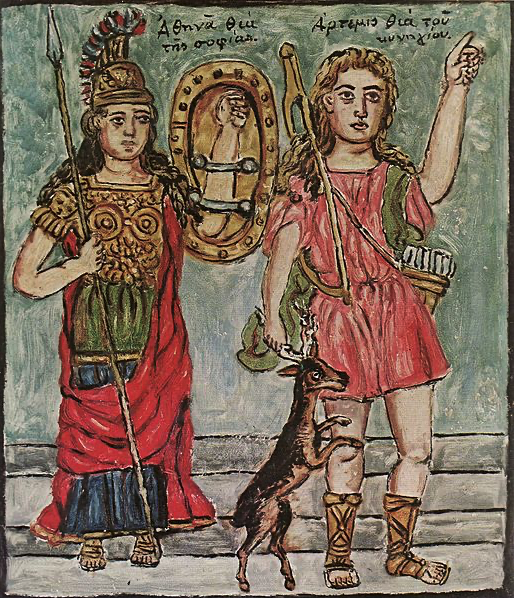
The ancient Greeks had a pantheon of gods and goddesses, each with their own unique attributes and powers. Among them, Athena, the goddess of wisdom, courage, and strategic warfare, was one of the most revered and worshiped.
Here are five intriguing facts about how the ancient Greeks revered and worshiped Athena.

1. Athena’s Birth
According to Greek mythology, Athena was born fully grown and armored from the head of her father, Zeus. This unique and unconventional birth made Athena a symbol of strength and wisdom from the moment of her creation. As a result, she was often portrayed as a fierce warrior, equipped with a shield, helmet, and spear.

2. Athena’s Parthenon
The Parthenon is one of the most iconic structures in ancient Greek architecture, and it was built in honor of Athena. This temple, located on the Acropolis in Athens, was completed in 438 BCE and served as a sanctuary for the goddess. The Parthenon was adorned with ornate sculptures, including a massive statue of Athena made of ivory and gold.

3. Athena’s Olive Tree
Another important symbol of Athena was the olive tree. According to legend, Athena created the first olive tree as a gift to the people of Athens, who then named her their patron goddess. The olive tree became a symbol of peace, prosperity, and victory, and it was often depicted in art and architecture dedicated to Athena.

4. Athena’s Festival
Every four years, the ancient Greeks celebrated the Panathenaic festival in honor of Athena. This grand event featured athletic competitions, musical performances, and religious ceremonies, all held in Athens. The festival culminated in a grand procession, where a new robe was presented to the statue of Athena in the Parthenon.

5. Athena’s Contributions to Society
Beyond her role as a goddess, Athena was also seen as a benefactor of society. She was credited with inventing several useful tools, including the plow, the loom, and the ship’s mast. Athena was also known for her wisdom and guidance, and many Greeks looked to her for inspiration and advice in times of crisis.

